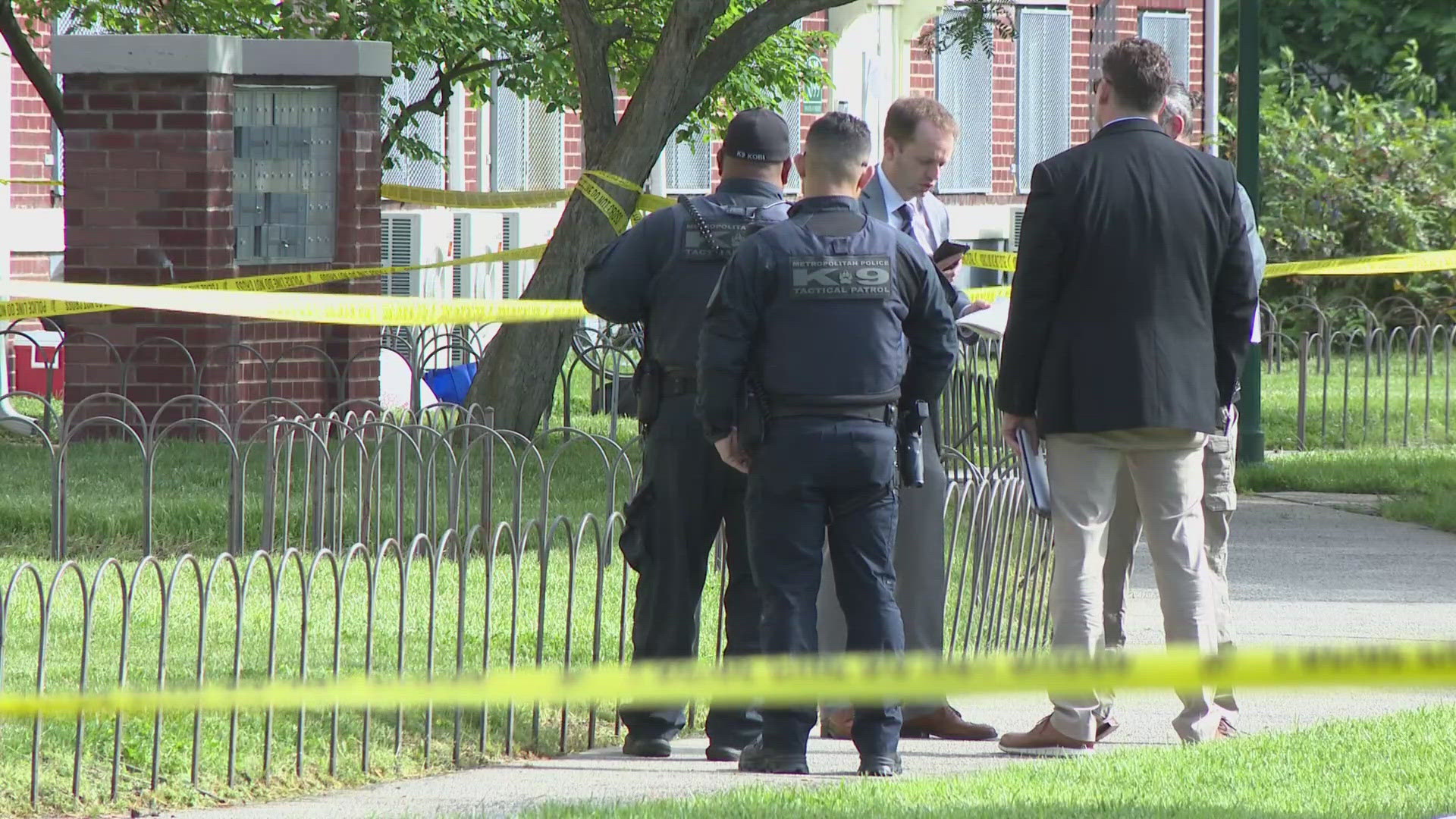HYATTSVILLE, Md (WUSA9) — A woman living with a rare genetic disorder has won a six month battle with Maryland health officials to regain her Medicaid benefits -and she's thanking WUSA9 for pushing her case forward.
We first brought you Andrea LaVant's story in September, when WUSA9 discovered a critical error by the Prince George's County Department of Social Services.
To unfold her story, we have to start with a morning in June, when a good friend filled a void. Normally, a home nurse prepared Andraea for work. Josie Gilliland rushed in when Andraea's world fell apart.
"She can't reach across the counter to get toothpaste or, you know, grab things off a shelf," Josie Gilliland said in June.
Andraea suffers from spinal muscular atrophy. Her health insurance covers most of her care, but not home nursing, which can run more than $2,000 every month, according to a bill she provided to WUSA9. If Andraea paid out of pocket, she'd have only a few hundred dollars left over for food and rent. Beginning in 2007, Maryland Medicaid paid the bill.
Payments lasted until May 2017, when the Maryland Department of Health sent Andraea a letter describing a dismal future. Her Medicaid funding was over, ending her home nursing. There was no explanation, no remedy for appeal.
"For me, it's literally laying in the bed if nobody comes. You're just kind of trying to, like, quickly think forward, like, what could this mean?," said Andraea Lavant in June.
That's when Andraea called us and we got to work, contacting agencies and lawmakers like State Senator Paul Pinsky (D-Prince George's County). Remember that name, we'll come back to him later.
We could see from the start this was messy. We often had a hard time getting through. In July, WUSA9 spent an afternoon with Andraea to make calls and after about 40 minutes, she gave up. She never got through.
There were problems on the phone and also on paper. Officials sent her letters that made no sense. In early July, she got one notice that said she would get Medicaid benefits through May 2018.
Then, officials sent her a conflicting letter. It said she could appeal her Medicaid cancellation in August. That's when Andraea's story took a turn for the worse.
"So, the medical assistance was based on zero income, and, I'm saying that was a department error," said the Prince George's County Department of Social Services representative during her appeal hearing.
The Prince George's County Department of Social Services revealed Andraea makes too much money to qualify for that Medicaid program. The agency admitted someone approved her in error. The judge canceled Andraea's Medicaid in September.
"I was very sad. I deserve just as much as the next person to be able to live my life," she said.
It looked like this story was over, but there was a question we couldn't let go: Why did the county social services department mark her as a food stamp recipient to begin with? A 2015 Medicaid application Andraea provided showed she accurately reported her full income. State officials concurred Andraea was honest about her full income.
In April, after months of questions, emails and phone calls, WUSA9 finally got the answer. Her problems started back in 2013, when Maryland rolled out a troubled health exchange website.
Katherine Morris, a spokeswoman for the Maryland Dept. of Human Services, told WUSA9 in an email someone at the Prince George's County Depart of Social Services had to mark Andraea a food supplement program recipient as a work around.
In other words: Someone put her in a program that didn't fit because she may not have received a dime.
Andraea wasn't alone.
In the 2015 Operating Budget Analysis, the Maryland Office of Legislative Affairs wrote that there were "numerous issues for Medicaid enrollees including incorrect eligibility determinations, stuck cases, difficulties in choosing managed care organizations, as well as with sending enrollment data to the Medicaid Management Information System."
Further, the system was "incapable of handling Medicaid redetermination," because the system had no access to the updated Medicaid adjusted gross income (often called MAGI) rules. Translation: The system couldn't figure out of a person still qualified for Medicaid after the legislative overhaul.
It took four years for the state to find and correct the error in Andraea's case.
After we took her story to State Senator Paul Pinsky's office, they started bugging the same agencies we were calling.
A few days before the New Year, a miracle appeared in Andraea's mailbox.
"Your plan of service will be effective on January 1, 2018," she read from the letter sent to her by the agency.
Andraea figured out she qualified for the Employed Individual with Disabilities program. Whenever she hit a wall, she looped in Pinksy's staff, who helped punch through the blockades.
Andraea now pays a $40 bill each month for home nursing, a small fraction of what that service costs out-of-pocket.
"If the story hadn't been told, I certainly wouldn't be here," she said.
When asked what did that letter give her, she said, "My freedom. My independence. There's no price for freedom."



